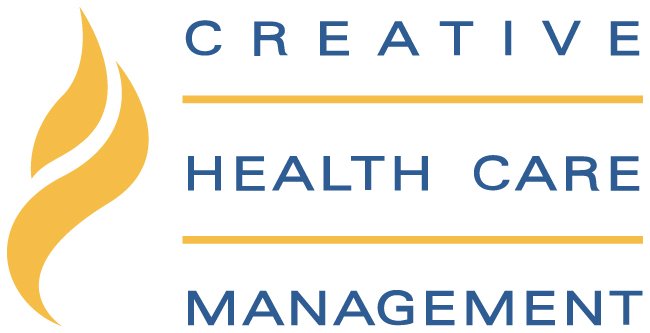It’s no secret that health care and the practice of medicine is becoming increasingly complex. What may be less apparent, however, is the toll that this complexity takes on physicians’ mental health and overall well-being. Burnout has become a pervasive problem in the medical community among graduate medical education students and medical professionals alike, with the prevalence of work-related burnout among doctors increasing significantly.
Given the importance of family physicians in our healthcare system, this is very alarming. Family physicians and nurses are under constant pressure and face a myriad of challenges on a daily basis.
Creative Health Care Management believes it is important to focus on developing resilience in this population to support clinician well-being so they can continue to provide high-quality care despite the stressors they experience. Thankfully, there is growing recognition of this issue and increasing effort to address it.
Physician Resilience: What it Is and Why It’s Important to Physician Well-Being
As the healthcare landscape continues to evolve, practicing physicians are increasingly being asked to do more with less resources. Longer hours, mounting paperwork, increasing expectations of medical education, and ever-changing regulations can take a toll on even the most dedicated of healthcare professionals.
That’s where physician resilience comes in. Physician resilience is the ability to thrive in the face of adversity. It is a quality that allows experienced physicians to adapt and cope with challenges, both big and small. When faced with difficult situations, resilient physicians are able to maintain their composure and focus on providing quality patient care. Without developing this skill, all physician well-being is in jeopardy, which puts patients at risk, too.
In today’s fast-paced world, the importance of individual and collective resilience to family physicians is often underestimated. Primary care physicians are so focused on patient care that they can forget to take care of themselves. However, the reality is that self-awareness and self care are important for health care physicians. They need to maintain their own physical and mental health in order to handle the challenges of their job. When physicians are resilient, they can set aside personal challenges and remain focused on their patients.
Common Sources of Physician Stress

As primary care physicians, you are constantly under stress. Whether it’s the day-to-day pressures of seeing patients, being on call, or dealing with insurance companies, it can feel like there is no escape from the stress of your job. However, not all stress is created equal. In fact, there are different types of stress that can have different effects on your body and mind. Below are some of the different types of stress that you may experience as a physician:
Patient Care Stress
Patient care stress includes the emotional challenges of dealing with sick patients and their families and the physical demands of the job. Patient safety and patient satisfaction are always top priorities, which can add to the compassion fatigue that health care providers experience. Tending to the well-being of sick patients on a daily basis can be emotionally draining, and many physicians struggle to maintain the quality of life they want, especially if they are pursuing ongoing medical education. This can lead to feelings of isolation, loneliness, and physical exhaustion.
The fear of making a mistake is also a common source of patient care stress. With every patient, there is a potential for medical errors, and even a small mistake can have serious consequences. As a result, physicians must always be on guard, second-guessing their decisions and questioning their abilities. This constant vigilance regarding patient well-being can expedite the development of anxiety and burnout among physicians.
Bureaucratic Stress
These are occupational stressors of paperwork, continuous medical training, and red tape that physicians have to deal with on a daily basis. It’s also known as work overload, which happens when you have too much work and not enough time to complete it all.
With new technologies and treatments constantly being developed, keeping your medical education up-to-date with the latest advancements can also be a challenge. Additionally, insurance companies and government regulations are constantly changing, making it difficult to provide the best possible care for patients. All of these factors can add up to a feeling of being trapped in health systems that are constantly changing out of your control, which can create a lot of uncertainty and stress among physicians.
Personal Stress
Personal stress can be caused by relationship problems, financial problems, or health problems leading to emotional exhaustion. It can also be caused by a major life event, such as the birth of a child or the death of a loved one. Many physicians find it difficult to maintain a healthy work/life balance, and this can lead to feelings of guilt and anxiety.
Male physicians are also more likely to experience personal stress due to the traditional gender roles that they are expected to uphold. They may feel pressure to be the primary breadwinner for their family, and this can lead to financial stress. Male and female physicians alike also face challenges when balancing their careers with raising children. Women physicians, however, also face the unique challenges of navigating sexism in and out of the workplace.
Another personal stress that contributes to physician burnout is the gender disparity among physicians. Women physicians do not earn promotions or advancements as often as their male counterparts, and they are more likely to experience sexual harassment in the workplace. This can lead to feelings of devaluation and resentment that can add to physician stress.
Signs and Symptoms of Physician Burnout
Physician burnout refers to a state of emotional, mental, and physical exhaustion that may be accompanied by feelings of cynicism and detachment from work. It can lead to decreased patient satisfaction, decreased productivity, and an increased likelihood of medical errors. Burnout among physicians is a serious problem, as it can impact not only the individual physician but also their patients and the healthcare system as a whole.
By practicing self awareness, practicing physicians can monitor themselves for signs of burnout. The signs and symptoms to keep an eye out for include the following:
Cynicism or Negativity
Have you lost the passion that once inspired you to enroll in medical education and enter the medical field? Do you find yourself making negative comments about your job or your patients? This can happen when you feel like you’re not doing a good job, no matter how hard you try. As a result, you may find yourself making more mistakes than usual, or you may feel like you’re always one step behind. If you’re starting to feel hopeless or jaded, this is a telltale sign of a lack of resilience and burnout.
Decreased Job Satisfaction
Do you dread going to work? Do you find yourself counting down the minutes until your shift is over? If you are no longer finding joy in your work, it may be time to take a step back, practice self awareness, and reassess your situation.
Detachment From Work
The feeling of being disconnected from your patients and your work is one of the most common signs of burnout. You may feel like you’re just going through the motions without any real passion or purpose.
Lack of Personal Accomplishment
This is also common among burned-out physicians. Do you still feel proud of your medical education? Do you feel proud of your current job? Are you satisfied with your title and medical knowledge? If you don’t find pride in your accomplishments, titles, or expertise, it’s time to reconsider your situation.
Reduced Productivity
If you find yourself working more hours to complete less work or struggling to complete tasks that used to come easily to you, it is a surefire way to know that you’re experiencing burnout. Your patient load may start to feel overwhelming, and you may have difficulty completing even basic paperwork. Practicing self awareness and reconsidering your approach to work is vital in this situation to avoid making any life-altering mistakes while on the job.
Exhibit Mood Swings or Changes in Personality
When you’re unable to practice mindful communication and you find yourself getting irritable or snappy with patients or colleagues for no reason, it may be a sign that you need to take a step back. If you find yourself withdrawing from social activities or hobbies that you used to enjoy, it may also be a good time to reevaluate your situation.
Physical Symptoms
Are you feeling tired all the time, even after a full night’s sleep? Do you find yourself needing more and more caffeine just to make it through the day? If you’re constantly running on empty, it may be a sign that you are burning out.
In addition to fatigue, physical symptoms of burnout can also include frequent headaches, stomach problems, difficulty eating or sleeping properly, and an increased frequency of illness. This is because our bodies can react in unexpected ways when we are under stress for prolonged periods of time; the immune system, in particular, can take quite a hit. If you are noticing physical symptoms that are out of the ordinary or your existing medical condition is flaring up more frequently due to the occupational stress, it is time to take systematic review of your physical and mental status, and recognize there could be a sign that you are severely burnt out.
Increased Absenteeism
If you’re struggling to make it to work on time, or if you find yourself calling in sick more often, this may be because you’re emotionally drained and physically exhausted. Because it can be difficult to muster up the motivation to go to work when you’re feeling this way, you may find yourself wanting to stay home more often.
Resilience Among Physicians: What it Is and What it Isn’t
A resilient physician is one who can weather the storms of medical practice in health care institutions. While every medical doctor will experience challenges and setbacks, resilient physicians are able to maintain their focus and commitment to their patients and their career through deliberate self awareness and mindfulness. However, there are many myths and sources of misinformation floating around about resilience.
Required Longitudinal Stress Management Workshop Study
A quasi-experimental study of the impact of a required longitudinal stress management and resiliency training course for medical students did not attenuate the strain and distress associated with the first year of medical educational program.
The conclusion of the study did not lead to measurable results in improving the student well-being, however, the study did show when physicians or students volunteered – there was a reduction in burnout and stress using similar methods.
The Four Pillars of Physician Resilience

First, we’ll cover the four pillars of promoting well-being and resilience in physicians: attitudes and perspectives, balance and prioritization, practice management style, and supportive relations. Each of these pillars provides a foundation for the others and helps to create a strong sense of resilience.
Next, we’ll dig into common myths about physician resilience and set the record straight.
Attitudes and Perspectives
A resilient physician has a positive attitude and realistic perspective. They understand that challenges are a normal part of medical practice, and they believe in their ability to overcome them. This positive outlook helps them to maintain their enthusiasm for their work, even when things are tough.
It is important to remember that resilience is not a personality trait that you either have or don’t have; it’s something that you need to develop and practice through self awareness so that you can view challenges as opportunities for growth with a long-term perspective of success.
Balance and Prioritization
It is also important for resilient physicians to create a balance between their work and their personal quality of life. This balance helps to prevent professional burnout and provides much-needed downtime for relaxation and rejuvenation. Furthermore, it is important for physicians to prioritize their time in order to make sure that they are providing the best possible care for their patients. This may mean saying no to non-essential tasks or delegating some tasks to others.
The goal is to focus on what is most important so that physicians can be their best selves in enhancing quality work life. Balance and prioritization foster well being by reducing physician burnout and promoting the resilience to withstand challenges in medical practice.
Practice Management Style
Another important element of resilience is the management style of the practice. A well-run facility will have a health care system in place that helps resilient physicians manage their time effectively, communicate with staff efficiently, and provide high-quality care without feeling overwhelmed. When practices are run in a supportive way, it will promote well-being, and physicians feel more relaxed and confident in their ability to provide excellent care. Practices will also find that promoting resilience to reduce physician burnout will boost the attendance, productivity, and satisfaction of their staff.
Supportive Relations
Finally, it is important for physicians to have supportive relationships with colleagues, staff, friends, and family members who understand the demands of medical practice. These relationships can provide a source of emotional support during difficult times and offer practical advice or assistance when needed. Having a strong network of support helps resilient physicians feel more connected and less isolated, which contributes to overall resilience.
Myths About Physician Resilience
Myths are stories that are based on half-truths and misinformation. They often contain a kernel of truth, but they are not accurate representations of reality. Here are common myths about resilience:
Physician Resilience Is a Personality Trait
Resilience is actually a skill that can be learned and developed over time. Everyone has the potential to be resilient, no matter what their personality type may be.
You Have to Be Tough to Be a Physician
Being tough is just one way of being resilient. There are various approaches to dealing with stress and adversity, and what appears to work for one person may not work for another. The key is to figure out what works best for you and to continue trying new methods until you find one that does.
Resilience Gives You Immunity to Challenges and Failures
Absolutely not. Resilience means that when you encounter challenges and failures, you have the ability to pick yourself up and continue on with your life and your career. Resilience is about rebounding, not perfection.
You Have to Do it Alone
This simply isn’t true. Asking for help is not a sign of weakness — it’s a sign of strength. Recognizing when you need assistance and seeking out support can help you maintain your resilience in the face of challenging circumstances.
Burnout and Depression Only Affect You as an Individual
These conditions can also have a negative impact on your patients, your colleagues, and your loved ones. When you’re feeling overwhelmed or struggling to cope, it’s important to reach out for help. There are many resources available to physicians who are struggling with their mental health, and seeking out care can make a big difference.
Mental Health Care Isn’t Worth the Risk
This couldn’t be further from the truth. There is no shame in seeking help for your mental health. In fact, having the self awareness to understand that you need treatment is vital to maintaining your well-being and being able to continue practicing medicine. If you’re struggling, don’t hesitate to reach out for help.
Quitting Is the Only Way to Escape the Pressure
There are many ways to cope with the challenges of being a physician, and quitting is not the only option. Remember that only you have the power to make choices about your career. If you’re feeling overwhelmed, taking a break or changing your practice environment may be your best decision.
Resilience Strategies to Overcome Physician Burnout

According to a recent study, 79% of physicians report feeling burnt out. This is an alarming statistic, as burnout can lead to errors in patient outcomes and an increased risk of making mistakes. There are a number of strategies that resilient physicians can use to deal with stress and maintain resilience. However, they all begin with the same step one: practicing self awareness to identify your stressors and how they are impacting you.
Recognizing the stressors in your life is the first step in managing stress and measuring how it impacts you. This can be done by measuring your well-being on a regular basis. You practice this form of self awareness in a journal, a note on your phone, or even a notepad. Once you’ve written down your sources of stress for a few days to a week, you’ll be able to identify trends among them, develop a plan to address them, and improve your mental health.
With this step out of the way, here are five resilience training strategies to manage stress and improve your overall well-being:
1. Develop a Plan to Address Each Type of Stress
As we’ve mentioned prior, once you have a better understanding of your stressors, you can develop a plan to address each one. The easiest way to do this is to break them down into two categories: personal stressors and structural or organizational stressors.
For personal stressors, consider what you can do to mitigate them. This might include taking a yoga class to reduce anxiety, scheduling more time for yourself outside of work, or redistributing the domestic labor in your home so you have more time to relax.
For structural or organizational stressors, you’ll want to develop a plan for how you’ll work within the health care system to bring about change. This could involve working with your medical group’s leadership to institute policies about resilience promoting programs for stress management, medical training to promote resilience and physician well-being, or even a peer support network for physicians in your area.
Additionally, it’s important to proactively assess the regulatory burden on your practice. This can be done by working with your state medical board or other regulatory agency to identify areas where the burden can be reduced.
By taking an active role in managing your stressors, you can help yourself stay resilient in the face of challenging situations.
2. Avoid Unhealthy Coping Mechanisms
One way to build the ability to bounce back from adversity is to avoid unhealthy coping mechanisms, such as drinking alcohol or using drugs. These substances may provide temporary relief from stress, but they can also lead to more serious problems down the road. Overeating and withdrawing from social interactions are also harmful coping mechanisms that can make stress management harder. Instead, physicians should focus on healthy coping strategies, such as exercise, mindfulness meditation, and seeking social support.
3. Practice Self-care
As medical doctors, you have dedicated your life to public health through years of medical school. However, in order to be the best possible doctor for your patients, you need to take care of yourself first. It may seem like a luxury, but it’s essential for sustaining your health and well-being.
So what does self-care for physical health look like? It can be anything that helps you relax and recharge, from taking a break to healthy engagement with family and friends. It’s also important to eat healthily, exercise regularly, and get enough sleep. Exercise has been shown to reduce stress, improve your mood, and increase your energy levels. Even a moderate amount of exercise can make a big difference.
Sleep is one of the most important but often overlooked aspects of self-care. When you’re sleep-deprived, you’re more likely to make mistakes, have accidents, and experience problems with your memory and concentration. To make sure you’re getting enough sleep, establish a regular sleep schedule and stick to it as much as possible. Avoid working late into the night and getting up early in the morning, and make sure to get at least seven to eight hours of sleep each night.
Finally, eating unhealthy foods and skipping meals due to busy schedules are common among physicians and those in medical school. This can lead to weight gain, fatigue, and low energy levels. To make sure you’re getting the nutrients your body needs, eat a balanced diet with plenty of fruits, vegetables, and whole grains, and make sure to schedule time for meals instead of grabbing something on the go.
4. Connect With Others
Social support is the key to maintaining resilience. When you have a strong network of family and friends, you’re more likely to weather life’s storms. Fellow physicians can provide support, understanding, and helpful tips for ways to manage difficult situations. Mentorship has shown to be an effective way to build camaraderie, as more experienced physicians can share their wisdom with those who are just out of medical school. Hospitals that require longitudinal stress management training to promote physician empathy with each other had a significantly lower rate of physician burnout.
In addition to your professional networks, the quality and quantity of your relationships with your family and friends can affect your mental and emotional well-being. You can start by making an effort to join family dinners and other social activities. You can also make constructive and healthy engagement with friends and family outside of work by scheduling regular outings, attending religious services, or participating in community activities. With these relationships, you can develop a strong network of support to help you overcome mental health problems and develop a strong health care workforce.
5. Seek Professional Help if Needed
Medical practitioners are trained to care for the physical ills of their patients, but they are often not equipped to deal with the psychological challenges that come with the job. Sometimes, the stress of being a physician can be too much to handle on their own. If you find yourself experiencing symptoms of burnout, such as chronic fatigue, insomnia, or loss of interest in work, it may be time to talk to a therapist or counselor. These professionals can help you develop coping mechanisms and work through the challenges you’re facing.
There are barriers to seeking mental health care, but it is essential to overcome these in order to get the help you need. One of the biggest barriers is the stigma of facing licensure issues stemming from mental illness. Disclosure of a mental health diagnosis may result in an investigation of professional conduct, raising concerns about one’s ability to practice. Although this is a valid concern, it is important to remember that seeking help does not make you weak; it makes you strong.
You may also benefit from attending a physician wellness educational program. Attending a stress management workshop provides an opportunity to step away from your daily routine to overcome compassion fatigue and focus on your own physician well-being. Health care institutions are designed to promote personal resilience and to provide the tools you need to thrive in your career. Mental health care is an essential part of physician satisfaction, and it should not be ignored.
Resources for Physicians Who Want to Improve Their Resilience

Resilience and burnout prevention is essential for a physician’s career satisfaction and longevity. The following are some helpful resources to find evidence-based strategies that can promote your quality of life and help you overcome psychological distress:
Podcasts
There are several in-depth interviews with physicians about how they overcame difficult situations in their careers that can be found on iTunes or other podcast streaming sites. For instance, The American Medical Association has a recent podcast called “AMA Recovery Plan for America’s Physicians” that features interviews with physicians about how they are dealing with the COVID-19 pandemic. From this podcast, you can learn how these physicians are managing their stress and anxiety and the physical and emotional toll that this pandemic has taken on them.
Books and eBooks
There are many helpful books about future interventions for physician wellness that can be found on Amazon.com or other online retailers. These books for graduate medical education residents and physicians offer guidance on self-care strategies resulting in job satisfaction and career resilience.
Workshops
Health care workforce institutions offer many workshops on physician wellness and resiliency training to help you cope with the challenges of your career. They focus on physician work life study, mindfulness meditation, managing trauma, and conducting interventions to promote self-care.
Online Courses
There are online resiliency training courses for those in the medical profession that are self-paced and interactive. They provide education on how to manage stress, build emotional resilience, and foster self-care among U.S. physicians relative to their work demands.
Resilience Training Programs
Resilience training programs, also known as “resiliency training”, are designed by experts in the field of psychology. They focus on enhancing emotional regulation skills, developing positive reframing skills, and other stress management techniques while using mindful communication to support the well-being of students. Resilience training can make a world of a difference for those working in health care institutions who are struggling with physician burnout.
Conclusion
Physician resilience has been gaining more attention in recent years as a way to help physicians manage the different types of stress they face on a daily basis. The four pillars of physician resilience can be used as a framework for helping physicians build their own personal resilience. There are several signs and symptoms of physician burnout, but by recognizing them early and implementing strategies to increase resilience, physicians can prevent burnout and take care of themselves. There are many resources available to you, including CHCM’s own resilience training programs Re-igniting the Spirit of Caring and See Me As a Person.
CHCM is a consulting firm that specializes in helping healthcare organizations build resilience, identify evidence-based strategies, and promote physician well-being. Our approach is tailored to each organization we work with, taking into account the unique stresses that physicians face. If you are feeling overwhelmed and stressed out, or if you see signs of burnout in yourself or your colleagues, please reach out to us for help.
Contact us today to learn what we can do to help you build resilience in your practice.


